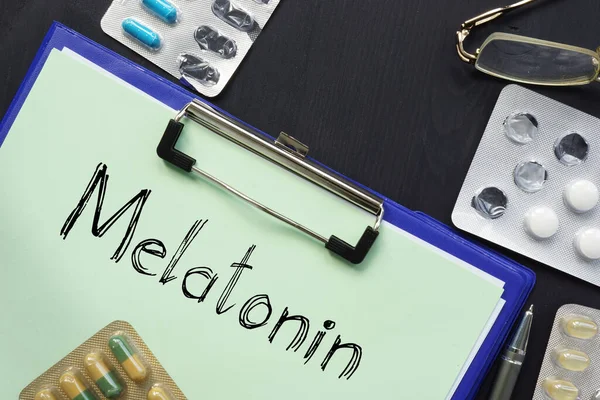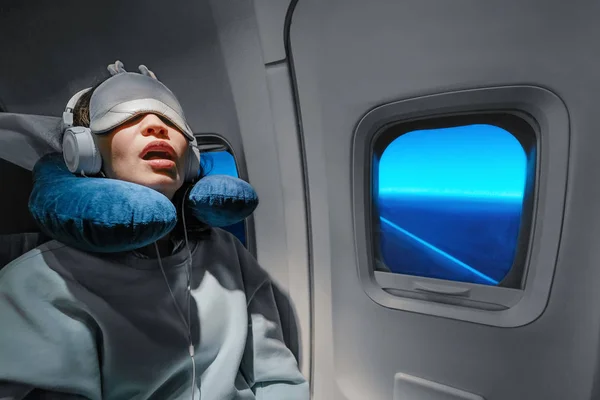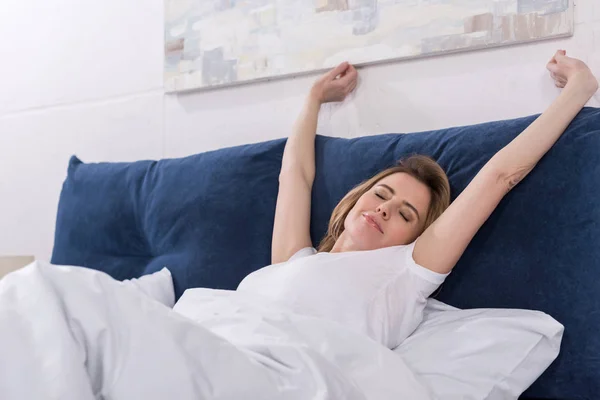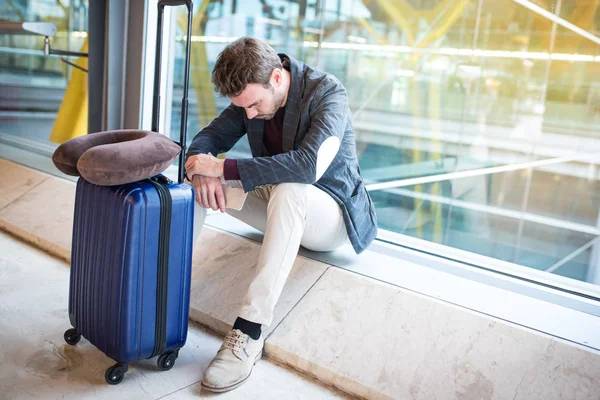Understanding how to beat jet lag requires learning about your body’s internal clock, called the circadian rhythm, which controls when you feel alert or sleepy throughout each 24-hour cycle. When you fly across multiple time zones, this biological clock becomes misaligned with your new environment, creating the exhausting symptoms we know as jet lag.
Research has revealed specific, scientifically-proven methods that can help reset your circadian rhythm faster and reduce these unpleasant effects. The good news is that scientists have identified numerous evidence-based strategies that work by targeting the specific mechanisms your body uses to synchronize with day and night cycles.
Here is a list of 17 jet lag remedies that have strong scientific support from controlled studies and clinical trials.
Melatonin Supplementation

Taking melatonin at the right time can significantly reduce jet lag symptoms, with studies showing it cuts recovery time nearly in half. The hormone melatonin naturally signals your brain when it’s time to sleep, and supplementing with 0.5 to 5 milligrams can help shift your internal clock to match your new time zone.
Research from multiple clinical trials found that eight out of ten studies showed clear reductions in jet lag when participants used melatonin correctly.
Strategic Light Exposure

Light exposure serves as the most powerful natural method for resetting your circadian rhythm, but timing makes all the difference between helping and hurting your adjustment. Morning light exposure after eastward travel helps advance your body clock earlier, while evening light before westward travel helps delay it later.
Understanding this principle allows you to use sunlight or artificial light sources as precise tools for clock adjustment rather than accidentally making jet lag worse.
Like Travel Pug’s content? Follow us on MSN.
Strategic Caffeine Timing

Using caffeine in small, frequent doses during appropriate waking hours can help maintain alertness while avoiding sleep disruption later. The key is consuming about 40–50 milligrams every 2 hours (equivalent to weak coffee or tea) rather than large amounts infrequently.
Studies indicate that strategic caffeine use combined with proper sleep timing provides better jet lag management than either approach alone.
Complete Alcohol Avoidance

Eliminating alcohol consumption before, during, and after travel helps maintain sleep quality and supports faster circadian rhythm adjustment. Alcohol disrupts normal sleep cycles and can interfere with the natural mechanisms your body uses to synchronize with new time zones.
Research consistently shows that travelers who avoid alcohol experience less severe jet lag symptoms and recover more quickly than those who consume alcoholic beverages.
Optimal Hydration Strategies

Maintaining proper hydration supports overall physiological function and helps your body cope with the stress of time zone changes more effectively. Dehydration from cabin air and altitude can worsen fatigue and make jet lag symptoms feel more severe than they are.
While hydration doesn’t directly reset your circadian clock, studies show that well-hydrated travelers report feeling better overall and have an easier time implementing other jet lag remedies.
Like Travel Pug’s content? Follow us on MSN.
Exercise Timing Coordination

Scheduling physical activity to align with your destination’s daylight hours can provide additional circadian rhythm cues that support faster adjustment. However, exercising at the wrong biological time can increase injury risk and interfere with sleep, so timing must coordinate with your overall light exposure plan.
Research suggests that outdoor exercise during appropriate daylight hours provides dual benefits of physical activity and light exposure.
Meal Schedule Synchronization

Eating meals according to your destination time zone helps provide secondary circadian cues that support your body clock adjustment, though food timing alone cannot reset circadian rhythms. The biological clock receives weak signals from meal patterns, which can supplement stronger cues like light exposure.
Studies show that combining proper meal timing with light therapy produces better results than using either method independently.
Ramelteon Prescription Therapy

This FDA-approved sleep medication works by targeting melatonin receptors and can help reduce sleep onset time after eastward travel across 5 or more time zones. Clinical trials found that 1 milligram taken before bedtime helped participants fall asleep faster in new time zones.
Unlike traditional sleep aids, ramelteon works specifically with circadian rhythm mechanisms rather than simply inducing drowsiness.
Like Travel Pug’s content? Follow us on MSN.
Tasimelteon Dual Receptor Treatment

This advanced medication targets both melatonin receptor types and has shown promise in clinical trials for improving multiple jet lag symptoms, including nighttime insomnia and daytime functioning. Research conducted under simulated jet lag conditions found significant improvements in both sleep quality and alertness levels.
While still being studied for jet lag applications, tasimelteon represents the cutting edge of circadian rhythm pharmaceuticals.
Strategic Napping Protocols

Taking brief 20–30 minute naps can help manage fatigue without disrupting nighttime sleep, but timing these naps requires careful coordination with your light exposure schedule. Power naps work best when taken during natural alertness dips in your destination time zone rather than when your body clock expects to be asleep.
Studies show that strategic napping combined with caffeine intake provides superior alertness compared to either technique used alone.
Blue Light Avoidance

Limiting exposure to blue light from screens and artificial sources during your destination’s evening hours helps prevent circadian rhythm disruption that can prolong jet lag. Blue light suppresses melatonin production and can shift your body clock in unwanted directions if encountered at the wrong times.
Research indicates that using blue light filters or avoiding screens entirely 2–3 hours before intended bedtime supports faster adjustment.
Like Travel Pug’s content? Follow us on MSN.
Morning Light Prioritization

Seeking bright light exposure within the first 2 hours of waking at your destination helps establish the new dawn signal your circadian rhythm needs for proper synchronization. This approach works particularly well for eastward travel, where you need to advance your body clock to an earlier schedule.
Studies demonstrate that morning light exposure combined with evening light avoidance can reduce eastward jet lag by 2–3 days.
Evening Light Management

For westward travel, getting light exposure during your destination’s evening hours while avoiding early morning light helps delay your circadian rhythm to match the later time zone. This technique works because your body clock naturally runs slightly longer than 24 hours, making westward adjustment generally easier than eastward travel.
Research confirms that westward travelers recover about 50% faster than eastward travelers when using appropriate light timing.
Circadian Rhythm Apps

Specialized apps like Timeshifter use scientific algorithms to create personalized light exposure, sleep, and medication schedules based on your specific travel details and sleep patterns. These apps incorporate decades of circadian rhythm research to provide precise timing recommendations that would be difficult to calculate manually.
Studies of app users show significantly reduced jet lag compared to travelers using generic advice or no intervention.
Like Travel Pug’s content? Follow us on MSN.
Gradual Sleep Shifting

Moving your bedtime and wake time by 15–30 minutes per day for several days before travel allows your body clock to adjust gradually rather than experiencing an abrupt shock. This method works especially well for business travelers who can plan and need to be functional immediately upon arrival.
Research indicates that gradual shifting produces less stress on circadian systems compared to rapid adjustments.
Light Meal Planning

Eating smaller, lighter meals helps reduce digestive stress while your circadian system adjusts, since your internal clock also controls digestive timing and enzyme production. Large, heavy meals can worsen jet lag symptoms because your digestive system may not be prepared to process food efficiently at unusual biological times.
Studies suggest that lighter eating patterns during the first few days after arrival support faster overall adjustment.
Activity Schedule Coordination

Planning important meetings, workouts, and social activities to align with times when your adjusted circadian rhythm will support optimal performance helps you function better while recovering from jet lag. Your cognitive performance, reaction time, and mood all fluctuate according to circadian patterns, so strategic scheduling can minimize the impact of any remaining jet lag symptoms.
Research shows that people who coordinate their activities with their biological rhythms perform significantly better than those who ignore circadian timing.
Like Travel Pug’s content? Follow us on MSN.
From Guesswork to Precision Medicine

The evolution of jet lag treatment reflects our growing understanding of circadian biology, transforming from folk remedies and generic advice into precise, personalized interventions based on individual physiology and travel patterns. Early travelers relied on willpower and coffee to push through jet lag, while modern approaches recognize that effective treatment requires working with your body’s natural timing systems rather than fighting against them.
Today’s evidence-based strategies combine ancient wisdom about light and sleep with cutting-edge research on molecular clocks, genetic variations in circadian sensitivity, and pharmaceutical interventions that target specific biological pathways. This scientific revolution means that jet lag no longer has to be an inevitable consequence of long-distance travel, but rather a manageable condition that responds predictably to the right combination of interventions applied at precisely the right times.
More from Travel Pug

- 20 Best Beach Towns in the Carolinas
- 13 Destinations Where Tourists Regularly Regret Their Trip
- 20 Things You Actually Get in First Class
- 20 Small Airports With Aviation Museums
- 20 Places in the U.S. That Are Perfect for a Reset Trip
Like Travel Pug’s content? Follow us on MSN.
